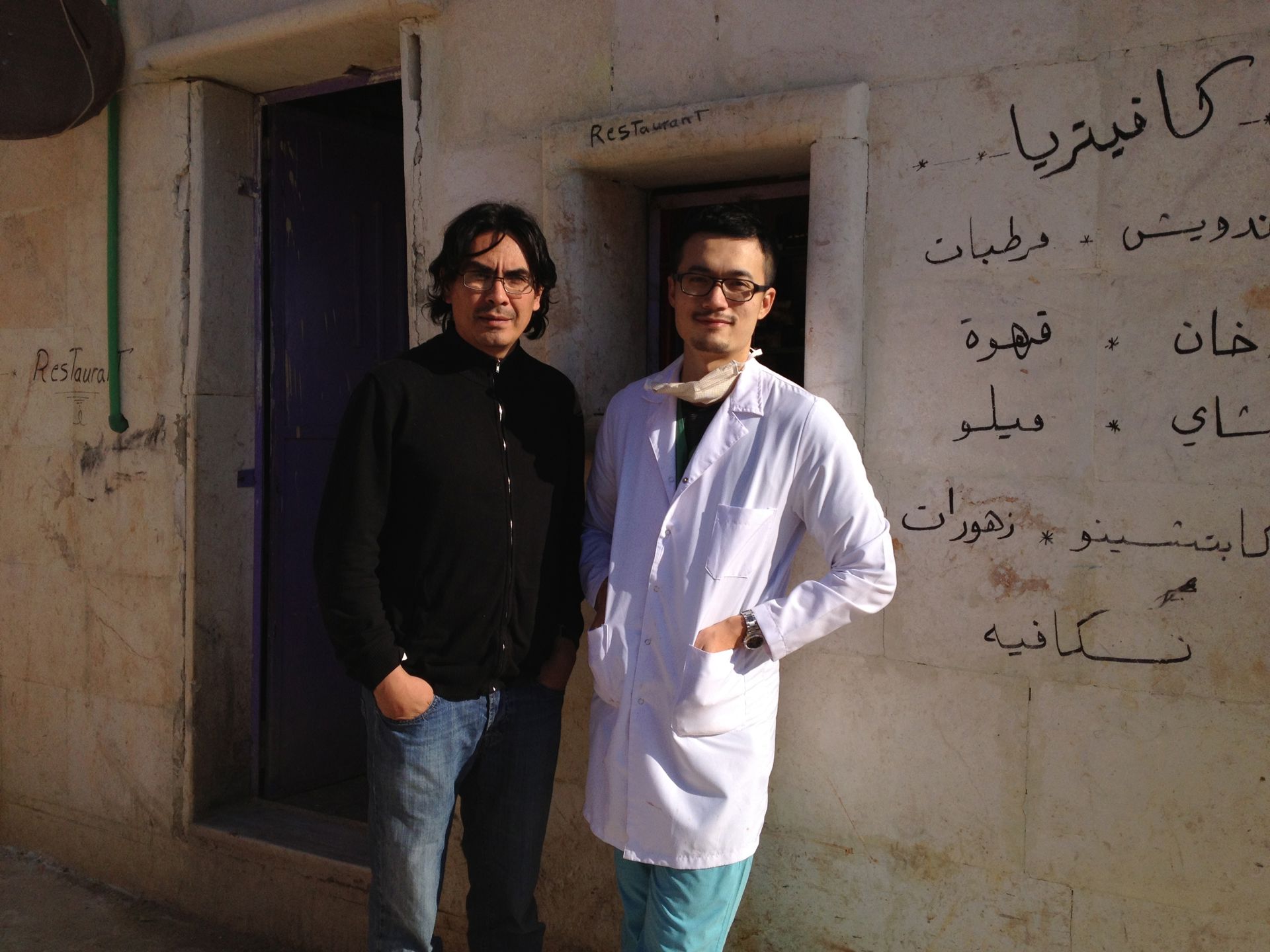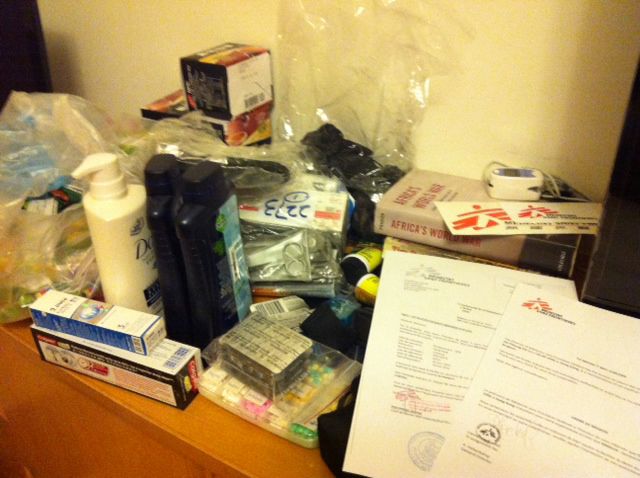Last November, I was informed by MSF that I had been matched for its mission in Syria. Though I had heard about the unrest in Syria, probably because it was my first time, I felt more excitement than fear.
Makeshift hospital converted from an abandoned school
However, I already experienced the tension on the first day. On arrival, I found that the makeshift hospital was actually converted from an abandoned school. There, MSF ran an emergency room (ER), an operating theatre (OT), an outpatient department, a pharmacy, a delivery room, two 15-bed general wards, and an isolation ward. Although small, I thought that its capacity should be adequate for the local population as nearby was just a small village.
Later I found myself absolutely wrong: Waves of patients were brought into the ER, many of whom were victims of bomb blasts. I once encountered a family of four – a father with three sons. They were brought in separately following four explosions. The father had his toes blown off; his eldest son had his left leg amputated; the rest two brothers also had limbs severely injured. As our surgical team had only six staff, we worked from 8am to 6pm every day. We had five to six major surgeries on average per day, excluding minor operations in the ER.
“The most common difficulty we encountered was to decide on who should be operated first – whose conditions were more serious? ”
Apart from the heavy workload, life was not easy either. For safety purposes, my daily routine was in between the hospital and living compound which were only hundreds of meters apart. Back to my room after work, I could always hear sounds of what we called “deep Bass” in the distance – rumbles of aircraft and explosions. They could be heard until dawn. After a while, I found myself getting used to those dreadful sounds. Once, whilst I was chatting with my colleague on the rooftop, all of a sudden we heard an extremely loud bang, followed by sparks flying in all directions. We immediately rushed into our “safe room” and waited until it was safe to come out. Later we found out that the bomb had exploded only 1 km from us. The shock, to this day, remains very vivid to me.
Indiscriminate bombings could destroy any village and even hospitals could be a target of attack. There were several well-equipped hospitals in northern Syria, but since the war broke out, most of them have been destroyed. For local people and for those who were fleeing to Turkey, our hospital was their only access to medical assistance if they were injured or sick. Apart from direct victims of violence, our hospital had also treated many patients suffering from chronic diseases. When I was on night duty, I encountered a few patients with severe hypertension who required immediate medical treatment.
We have to hang on
The pressure of being on call 24 hours a day, 7 days a week was tremendous. However, in conflict zones like Syria, when you see so many helpless patients waiting for your help, you just have to tell yourself to hang on. I had once received a call at midnight – there was a teenage girl who was severely injured in a blast with a nasty gaping wound in her chest. She needed to undergo surgery right away, but as cardiothoracic surgeries required special anesthetic equipment which our hospital didn’t have, we weren’t able to do the surgery. What we did instead was inserting a drain tube and putting a dressing over her wound, and calling the MSF Project Coordinator in Turkey who then helped us to contact a Turkish hospital near the border. Once we confirmed that the hospital had the capacity for cardiothoracic surgeries, we escorted the girl onto an ambulance. 15 minutes later, we arrived at the border and referred her to the Turkish hospital. I didn’t sleep at all that night, but it was worth it.
“Security Briefing” every morning
Back in Taiwan, sometimes I still think of my patients – patients like that girl, wondering how she’s doing. And when I have my breakfast at home, I recall the days in Syria: every morning we would have a “Security Briefing” over breakfast – our Field Coordinator and his local assistant reported on the latest situations in the area. I really appreciate the efforts of MSF coordinators and logisticians. They made every effort to ensure security and help us to ease our tensions.
I have honestly never regretted working in Syria as my first mission with MSF. In war-torn regions, our presence may sometimes feel insignificant, but I know that our work does have great impact on the local community. This is what I can tell from our patients’ eyes.
Ethan LEE, Anaesthetist from Taiwan, his first mission with MSF was in Syria where he was stationed in a hospital in northern Syria.



